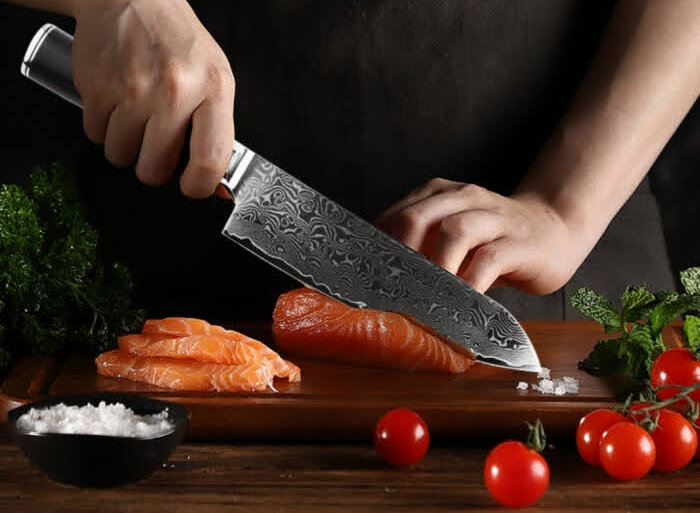Every kitchen professional understands the importance of having the right tool for the job. The debate of using a paring vs utility knife in Damascus steel is a topic that fascinates many culinary enthusiasts. Damascus steel, known for its distinctive patterns and legendary sharpness, has been a choice for centuries when it comes to crafting supreme quality knives. But when you're in a bustling kitchen, how do you decide between a paring knife and a utility knife in this elegant material?

What Makes Damascus Steel Special?
Damascus steel is not just a style; its a tradition. Recognized for its unique wavy patterns and incredible resilience, Damascus steel provides both beauty and functionality. The history of Damascus steel goes back to ancient times, where it was used to make weapons and tools. Today, it remains a favored choice in kitchens around the world. For more about this fascinating material, you may refer to A Very Brief History of Damascus Steel.
The Elegant Edge: Paring Knife in Damascus
When considering a paring knife, its utility in intricate kitchen tasks makes it indispensable. Paring knives are small, typically with blades that are 2.5 to 4 inches long. They are perfect for tasks that require precision, such as peeling, trimming, and intricate cutting. A Damascus paring knife, with its sharp, fine edge, offers clean and beautiful cuts, enhancing both the visual appeal and texture of delicate ingredients.
The Versatile Companion: Utility Knife in Damascus
On the other hand, a utility knife in Damascus is the jack-of-all-trades in the kitchen. With a blade length ranging from 4 to 7 inches, it bridges the gap between a chef's knife and a paring knife. Its versatility makes it suitable for a wide array of tasks, from slicing vegetables to carving small pieces of meat. The robustness and sharpness of Damascus steel further contribute to making this an essential tool for professional kitchens.
Key Differences Between Paring and Utility Knives
While both these knives might seem similar at first glance, their applications and benefits differ significantly. The paring knife is tailored for precision and meticulous work. Meanwhile, the utility knife caters to a wider range of kitchen tasks, offering versatility and ease for everyday culinary needs.
For kitchen professionals, choosing between a paring vs utility knife in Damascus boils down to the specific task at hand. If precision and small-scale tasks are a priority, a paring knife is the way to go. However, for general utility in slicing and preparing medium-sized ingredients, the utility knife reigns supreme.
Why Choose Damascus for Your Kitchen Blades?
The allure of Damascus steel in culinary blades is multi-faceted. Aside from its aesthetic appeal, the strength and sharpness it imparts to a knife is unmatched. It allows for fine edges that maintain their sharpness longer than most other steel types. Furthermore, the intricate patterns that adorn Damascus knives transform them into more than just a kitchen toolthey become statements of your culinary artistry.
Maintaining Your Damascus Knives
To ensure the longevity of your Damascus knives, proper maintenance is crucial. Regular honing, handwashing, and careful storage are key practices to keep your blades in pristine condition. For ways to store your prized knives, consider options like Knife Block with Damascus Set for safe and stylish storage.
Conclusion: Choosing the Right Knife for Your Needs
In the dynamic environment of a professional kitchen, having the right knife can significantly influence your culinary outcomes. While the choice between a paring vs utility knife in Damascus might seem challenging, understanding their respective strengths can be your guiding light. Whether you value the precision of a paring knife or the versatility of a utility knife, Damascus steel offers something exceptional to elevate your culinary experience.

FAQs
What is the main advantage of a Damascus blade?
Damascus blades are renowned for their sharpness, edge retention, and unique patterns, making them both functional and visually stunning.
Can a utility knife replace all other types of knives in the kitchen?
While a utility knife is versatile, it cannot fully replace specialized knives such as paring or chef's knives, each designed for specific tasks.
How should I clean my Damascus knife?
It is recommended to hand wash Damascus knives with mild soap and water to maintain the quality and longevity of the blade.
This article contains affiliate links. We may earn a commission at no extra cost to you.


























